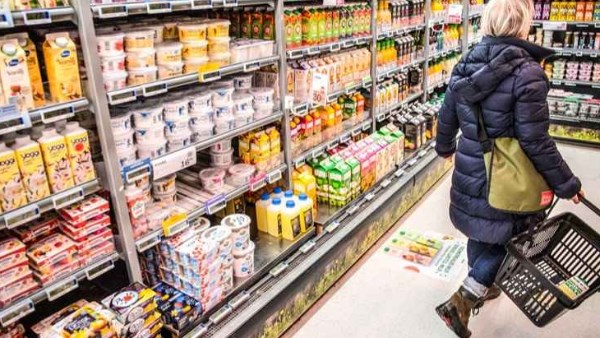
Mexico and Canada still face a separate set of duties related to fentanyl
Inflation falls in March as annual core consumer prices rise at slowest rate in four years

March's Consumer Price Index (CPI) report showed inflation pressures eased considerably last month, with annual core prices rising at their slowest pace since March 2021. But it could be the last time investors see moderating price growth as President Trump's tariff spree threatens to upend recent easing trends.
The latest data from the Bureau of Labor Statistics showed that the Consumer Price Index (CPI) increased 2.4% over the prior year in March, a slowdown from February's 2.8% annual gain and a beat compare to economist expectations of a 2.5% annual increase.
On a month-over-month basis, prices declined 0.1% — the first time monthly CPI prices have fallen since May 2020. This was also below the 0.2% increase seen in February and a beat compared to economists' estimates of a 0.1% monthly uptick.
On a "core" basis, which strips out the more volatile costs of food and gas, prices in March climbed 0.1% over the prior month, cooler than February's 0.2% monthly gain and ahead of economist expectations of a 0.3% increase.
Over the last year, core prices rose 2.8%, a deceleration from the 3.1% annual core price increases seen in the prior-month period and the slowest annual rise in four years.
Overall, March delivered the second straight monthly decline in headline and core CPI inflation.
The report greets investors less than 24 hours after markets rallied on the latest trade development: a 90-day pause on reciprocal tariffs for most countries and a simultaneous increase of US levies on Chinese imports.
Although Trump has paused reciprocal tariffs (for now), the 10% baseline duties that went into effect last weekend for most countries remain. Mexico and Canada still face a separate set of duties related to fentanyl, while separate industry-specific tariffs on steel, aluminum, and autos remain unchanged.
The president also announced he would unilaterally raise the tariff rate on China to 125%, citing "the lack of respect that China has shown."
Economists continue to caution that current tariffs will likely lead to faster price growth. That, coupled with rising fears of a self-inflicted recession, has kept the Fed in "wait-and-see" mode when it comes to interest rates.
"This could easily be the last really good CPI day for a while," Claudia Sahm, former Federal Reserve Board economist and current chief economist at Century Advisors, told Yahoo Finance following the data's release. "The tariffs that have gone into effect [but] it's going to take time for it to show up in the data."









-32025522145948.jpg)
-320255125357264.jpg)














